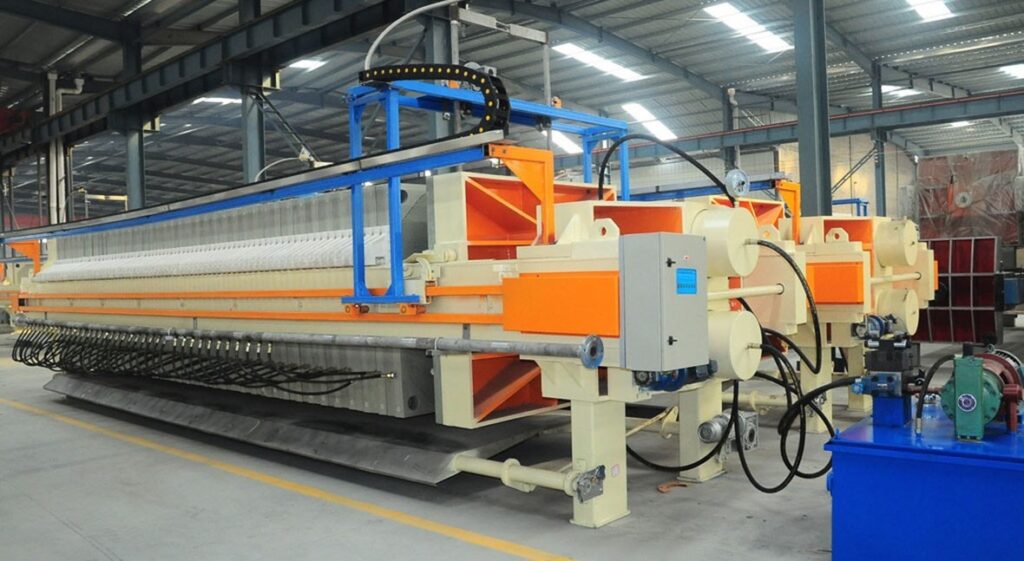Wastewater treatment is a crucial process in various industries, including chemical, pharmaceutical, food and beverage, and municipalities. We will provide a comprehensive guide on filter press wastewater treatment, including its definition, working principle, types, and applications.
What is Filter Press Wastewater Treatment?
Filter press wastewater treatment is a method of treating wastewater using a filter press, which is a machine designed to separate solids and liquids. The filter press consists of a series of plates and frames that are arranged alternately, with a filter medium, such as a filter cloth or paper, placed between the plates.
The wastewater is fed into the first plate, and the solids are captured by the filter medium, while the liquids pass through the plate and flow into the next frame, where the process is repeated. This continues until the wastewater reaches the final plate, where it is discharged as a filtrate.

Types of Filter Press Wastewater Treatment:
There are several types of filter press wastewater treatment systems, including:
- Gravity Filter Press: This is the most common type of filter press, which uses gravity to separate solids and liquids.
- Pressure Filter Press: This type of filter press uses pressure to separate solids and liquids, which is more effective than gravity filter press.
- Membrane Filter Press: This type of filter press uses a membrane as the filter medium, which is more effective than traditional filter presses.
Applications of Filter Press Wastewater Treatment:
Filter press wastewater treatment has a wide range of applications in various industries, including:
- Chemical Industry: Filter press wastewater treatment is used to separate solids and liquids in chemical processing, such as in the production of chemicals, pharmaceuticals, and fuels.
- Food and Beverage Industry: Filter press wastewater treatment is used to separate impurities from food and beverage products, such as fruit juice, wine, and edible oils.
- Water Treatment Industry: Filter press wastewater treatment is used to remove impurities from water, such as suspended solids, bacteria, and viruses.
- Pharmaceutical Industry: Filter press wastewater treatment is used to separate solids and liquids in the production of pharmaceuticals, such as tablets, capsules, and injectables.

Benefits of Filter Press Wastewater Treatment:
Filter press wastewater treatment has several benefits, including:
- Cost-effective: Filter press wastewater treatment is a cost-effective method of treating wastewater, as it does not require chemicals or energy-intensive processes.
- Efficient: Filter press wastewater treatment is an efficient method of treating wastewater, as it can remove up to 99% of solids and impurities.
- Flexible: Filter press wastewater treatment can be customized to meet specific requirements, such as the type of filter medium, plate size, and number of plates.
- Environmentally friendly: Filter press wastewater treatment is an environmentally friendly method of treating wastewater, as it does not produce harmful byproducts or emissions.
Conclusion:
In conclusion, filter press wastewater treatment is a reliable and effective method of treating wastewater in various industries. Its simplicity, efficiency, and cost-effectiveness make it a popular choice for wastewater treatment. By understanding the different types of filter press wastewater treatment systems and their applications, industries can make informed decisions about the best treatment methods for their specific needs.